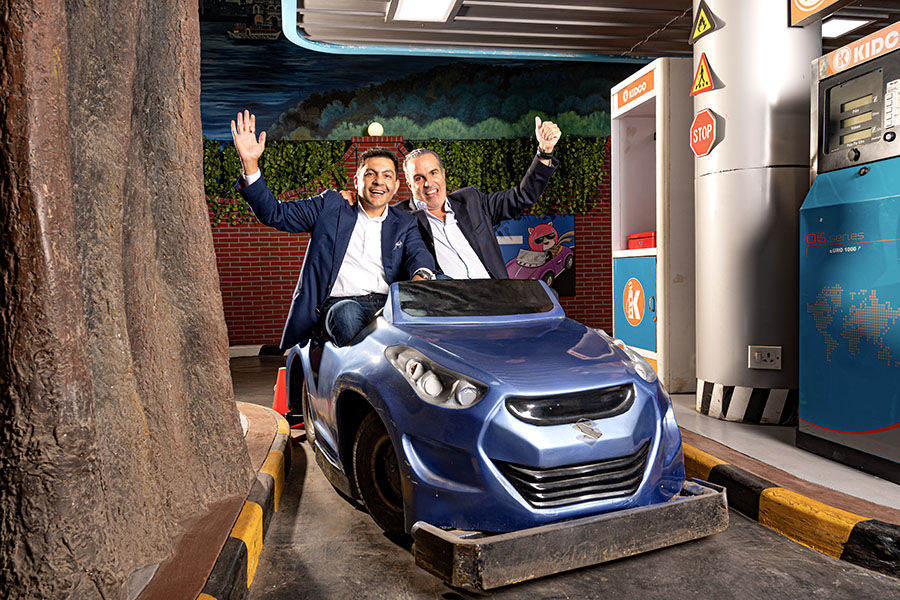
'The biggest decision is not which market, but which partner': KidZania Founder Xavier Lopez Ancona
As the edutainment company celebrates 10 years in India, the Mexican entrepreneur talks about taking it to 23 countries, how children everywhere are essentially similar, and how India bucks global trends in real estate rents
 (L To R} Paras Chandaria - Founder and Promoter, KidZania India and Xavier Lopez Ancona - President and CEO, KidZania at KidZania ,Ghatkopar. Image -Swapnil Sakhare for Forbes India
(L To R} Paras Chandaria - Founder and Promoter, KidZania India and Xavier Lopez Ancona - President and CEO, KidZania at KidZania ,Ghatkopar. Image -Swapnil Sakhare for Forbes India
It has been a decade since KidZania opened its first India centre in Mumbai in 2013, and then in Delhi in 2016. The edutainment company, founded by Mexican entrepreneur Xavier Lopez Ancona, is present in 23 countries and is now eyeing five more cities in India, and perhaps even second centres in Mumbai and Delhi.
Paras Chandaria, executive chairman of California-headquartered UST Global, who is the largest investor in KidZania India with Rs107 crore—actor Shah Rukh Khan is the other investor—says that in the next eight to 10 years, India will become the largest market for KidZania across the world, with at least seven to eight centres, surpassing Mexico with four; similarly, Tier-II markets and upcoming towns in India with a high density of children will be tapped into.
With the Covid-19 pandemic severely affecting all players in the indoor entertainment and hospitality sectors, KidZania was no exception. Current annual revenue stands at Rs80 crore, with a 17 percent cash profit as of March 2023. The company is now looking to bolster revenues by using the same physical assets in multiple ways for different demographics.
In India to celebrate the company’s 10th anniversary, Ancona and Chandaria spoke to Forbes India about the impact of the pandemic, the road to recovery and growth in the Indian market. Edited excerpts:
Q. In the last 10 years, the global economy has gone through a lot of turmoil for various reasons. How has KidZania fared in these conditions?








